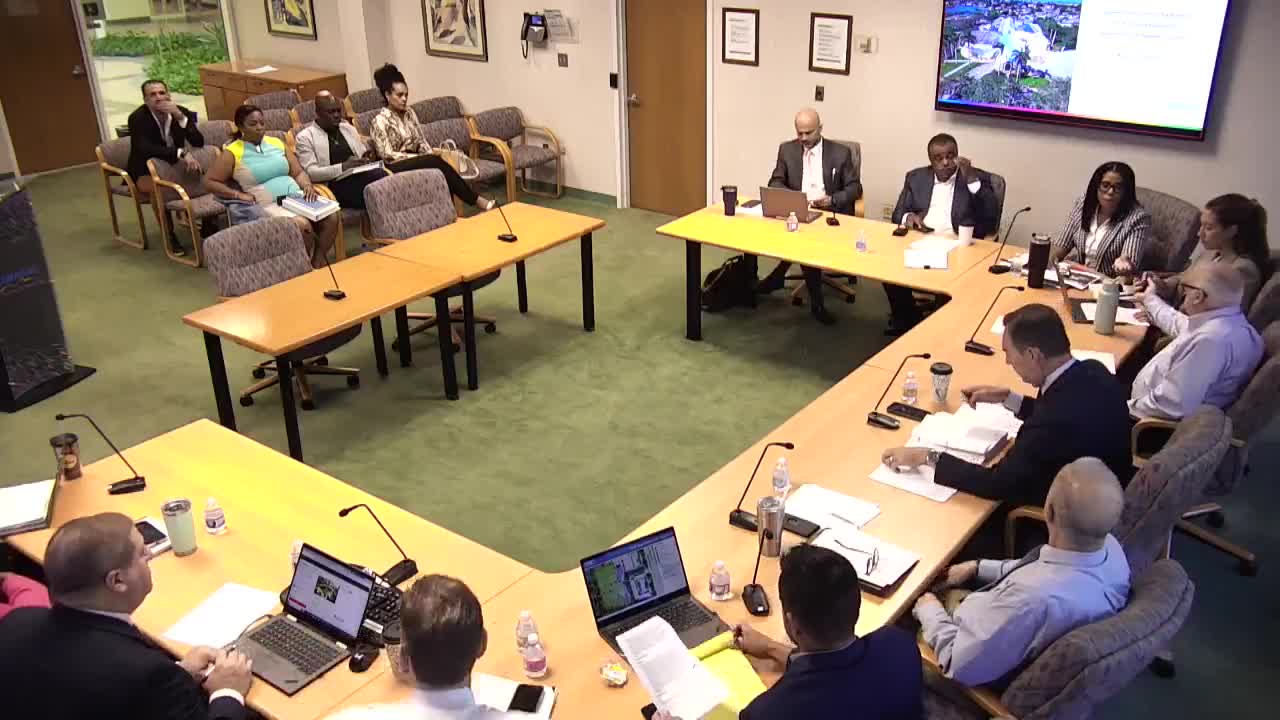City staff brief commission on HB 657 speed-detection option; mixed survey response and study results
Get AI-powered insights, summaries, and transcripts
Subscribe
Summary
Staff reviewed HB 657 implementation requirements and a speed study showing violations at several school zones; follow-up accident data and a community survey showed divided public opinion. Staff will bring an item on April 9 to consider drafting an ordinance and selecting enforcement periods and zones.
City of Tamarac staff reviewed the state statutory framework for automated school-zone speed detection under HB 657, summarized a vendor speed study, Broward Sheriff’s Office accident data, and the results of a city survey, and recommended the commission consider whether to direct staff to draft a local ordinance.
Tanya Sterling, assistant to the city manager, summarized statutory requirements: local adoption by ordinance, a 30-day awareness campaign, independent performance verification of equipment, deletion of footage within 90 days, law-enforcement review of violations, and allowable enforcement periods (morning hour, afternoon hour or all-day school period). The statute requires citations for speeds 10 mph or more over the posted limit.
Sterling said a RedSpeed study of four school-zone locations showed several hundred violations on at least one sample day and that violation timing varied by location (morning, mid-day, afternoon depending on the school). Broward Sheriff’s Office accident data presented by staff showed accident counts for the sites across 2023 and 2024; for example, Renaissance Charter had 69 accidents in 2023 and 42 in 2024 in the dataset staff reported. Staff cautioned that additional evidence may be required to meet statutory standards for some locations.
The city’s online survey (launched March 10) drew about 539 respondents and split almost evenly: about 49% supported the program and 51% opposed. Respondent types included 82 who identified as residents, 24 as parents/guardians and 22 as residents who live in a school zone.
Staff outlined vendor terms used in nearby municipalities: RedSpeed’s turnkey program covers permitting, construction and maintenance; legal defense support is offered by the vendor; Plantation chooses all-day enforcement and the vendor contract terms typically run five years with an option to extend. Staff noted different enforcement options would affect how fine revenue is split under statute and by contract: under the statutory $100 fine example referenced by staff, the city would retain a portion and the vendor and other entities receive specified shares; staff described one alternate split if enforcement is limited to one hour per day.
Sterling told staff would present the matter for commission discussion on April 9 to determine whether to proceed with drafting a local ordinance, identifying school zones and defining enforcement periods. No final decision was made at the workshop; staff said an elected public hearing and ordinance would be required before implementation.
